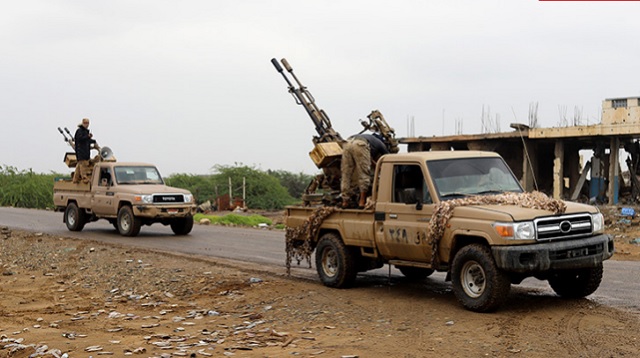
Almost three years into a devastating war with the Rapid Support Forces (RSF), the Sudanese Armed Forces (SAF) appear to have regained control over the capital
ANALYSIS | AGENCIES | Sudanese Armed Forces (SAF) chief Abdel Fattah al-Burhan announced on March 26 that “Khartoum is now free” after his troops successfully recaptured the capital’s airport and the weapon manufacturing center from the paramilitary Rapid Support Forces (RSF).
Speaking from the presidential palace, al-Burhan marked his return to the building for the first time in nearly two years. The government had regained control of the palace earlier on March 21 in what is seen as a significant victory in a war that broke havoc on Sudan and its people.
The Sudanese army also surrounded key areas around the airport, forcing RSF fighters to retreat across a bridge out of the area. SAF troops reportedly have encircled Jebel Awliya, the last major RSF stronghold south of central Khartoum.
Additionally, the army has secured both sides of the Manshiya Bridge, which spans the Blue Nile River, limiting RSF’s ability to move freely. The Jebel Awliya Bridge is reportedly the only route under RSF control for withdrawing troops from the capital.
This latest military push marks an effort to drive RSF forces out of central Khartoum, where they have maintained a stronghold since the war began in April 2023.
The SAF has been engaged in a brutal conflict with the RSF since the war began. And while the Sudanese people mostly view the latest developments positively given the exceptional brutality of the RSF, the SAF military have also been accused of engaging in the killing and displacing of Sudanese civilians.
Earlier in the week, the UN reported that “hundreds of civilians, and scores were injured” in a busy market in the town of Tora, northwest al-Fashir. The human right organisation didn’t accuse any party of carrying out the airstrike, saying that both parties had a record of indiscriminately shelling civilian areas.
“Despite my repeated warnings and appeals to both the Sudanese Armed Forces and the Rapid Support Forces to protect civilians in line with international humanitarian law, civilians continue to be killed indiscriminately, maimed and mistreated on a near daily basis, while civilian objects remain an all-too-frequent target,” said UN High Commissioner for Human Rights Volker Türk.
In an interview with Al Araby, a member of Emergency Lawyers, who has been documenting violations on both sides, blamed the airstrikes on the SAF relying on testimonies from the families of the victims. “The army aircraft targeted their relatives” given that the army doesn’t have the technology to distinguish between civilians and military targets, the lawyer argued.
The independent legal network stated that this entire conflict is a “war of evading responsibility for killing Sudanese civilians,” and asked for the immediate intervention of the international committee and the Security Council to investigate these crimes and gather victims’ testimonies.

A spokesperson for UN Secretary-General António Guterres on March 25 said the global body is gravely alarmed by continued attacks on civilians across Sudan.
Stéphane Dujarric, who was briefing the media, revealed that on March 24 night in North Darfur, dozens of casualties were reported when an air strike hit a market located about 40 kilometres north-west of El Fasher.
“The UN is also deeply concerned about escalating attacks on populated areas in Khartoum. In eastern Khartoum yesterday (Monday), there were reports of civilians killed and injured when artillery struck a mosque during evening prayers,” he said. “Civilian casualties were also reported on Sunday as a result of heavy shelling in Omdurman, Khartoum’s twin city.”
“The UN reminds all parties to the conflict of their obligations under international humanitarian law to protect civilians and civilian infrastructure, and to take all possible measures to avoid harm to civilians,” Dujarric added.
On the health front, he said that the ongoing hostilities and recent funding cuts by major donors have severely disrupted health services in Sudan, including in the Darfur region. Last month alone, nearly half of all reported attacks on healthcare facilities in Sudan occurred in Darfur.
“The UN’s partners working in health report that most facilities in the region have only one to two months of supplies remaining, with acute shortages in North and South Darfur states. The UN and its partners continue to do all they can to meet the rising needs – despite funding shortfalls and access constraints, including due to the ongoing hostilities,” Dujarric said. “In North Kordofan, located to the west of Khartoum, the partners assessed recently that nearly 58,000 people – including displaced people, returnees and residents – are in urgent need of humanitarian assistance. A health partner is now operating a facility and mobile clinic, and distributions of food and non-food items are planned.
The UN continues to urge the international community to step up support for the humanitarian response in Sudan, both through increased funding and by pressing all parties to protect civilians, including aid workers, and ensure safe and unhindered access to people in need.
****
Source: Internet
 The Independent Uganda: You get the Truth we Pay the Price
The Independent Uganda: You get the Truth we Pay the Price



